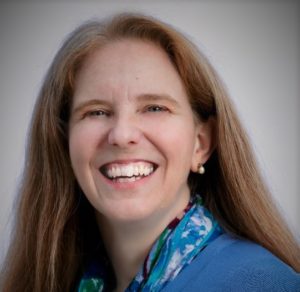Mar 7
A Person-Centered Approach to Assisting Older Adults with Mental Health Challenges

As part of our continuing education program, Springwell invited Mary Curlew, Community Education and Training Specialist at Jewish Family and Children’s Service (JF&CS), to speak with staff about a person-centered approach that will help Springwell care advisors better understand and effectively respond to mental health changes and challenges in older adults. The approach helps the older adult develop the knowledge, skills, and confidence they need to manage their own health and health care more effectively.
According to JF&CS, one in four older adults experiences some mental health concern, including depression, anxiety disorders, and dementia. Many potential risk factors exist for mental illness and some factors such as long-term illness, chronic pain, medication interactions, decreasing physical ability or loss of mobility, prolonged grief, social isolation, or poor diet may occur more frequently in older adults.
One of our goals for this training is to help Springwell care advisors better assist the older adults we serve. The training equips a care advisor with tools to help an older adult identify risk factors for mental health challenges and explore ways to alleviate them. Then, the care advisor and older adult can together devise a suitable Springwell care plan that enables the individual to better manage all aspects of their wellbeing.
Initially, this approach begins with a resiliency assessment that looks at the person’s sense of connection, capability, meaning and adaptability. The assessment might begin with a discussion of the person’s sense of purpose or “what keeps them going” to understand what gives their life meaning. People need to feel capable of taking care of themselves to feel resilient so exploring this topic with someone can uncover whether there are certain aspects of life where they feel capable and other areas where they could benefit from some extra support.
Curlew introduced the concept of ecomaps that can help someone better understand who supports them and show what additional support may be available. For Springwell purposes, an ecomap is a diagram that shows the older adult at the center with lines leading out to each of their relationships with people, groups, and organizations. Curlew noted that the visual gives people a keen sense of all the help that is there, and it can be especially reassuring to people who feel they are alone with their problems. The next step is to use different lines to identify the strength of each relationship. It may be strong, weak, reciprocal or one sided. When the overview is complete, the care advisor and older adult may address ways to strengthen weak relationships or use additional resources to supplement help.
Another tool to help Springwell care advisors working with older adults who may be struggling is an acronym, NURSE, that points individuals to self-care but does not force it. NURSE stands for Nutrition, Understanding, Rest, Sense of Purpose, and Exercise. The acronym can remind one to think about how well they are “nursing” themselves back to health. Good nutrition is helpful. Finding people who know and understand you, such as support groups “who get it” may be valuable. Exercise might include any physical activity that brings joy.
Another acronym Curlew introduced, WRAP, which stands for Wellness Recovery Action Plan, was created by Mary Ellen Copeland. It is a “toolbox” that helps individuals with mental health challenges to better manage their wellbeing. A care advisor might ask, “What do you look like when you’re well”? This gets to the person’s sense of capability and what they can do when they feel better. The capabilities can be included in a daily action plan. The individual may learn what stressors throw them off their plan and what warning signs they may experience that indicates they aren’t feeling as well. They may also put in place a crisis plan for themselves when they have a challenging time and need more assistance.
All these tools come together in the person-centered approach that Springwell embodies in our mission to help older adults live as independently as possible with supports that they want and need. Often, for various reasons, an older adult may feel resistant to doing certain things like eating enough nutritious food, or more emotionally challenging ones like accepting physical limitations or allowing a home care worker into their home to help. Whatever resistance an older adult is feeling can be a major obstacle to getting them the services or resources they need. As a care advisor utilizes the tools, she can help the individual explore why they are resistant to certain things and figure out viable solutions that are realistic.
Mental health challenges shouldn’t be a barrier to getting support and the knowledge gained in this training will help staff more effectively communicate with and provide the best resources for those they are serving.
The discussion concluded with time for Q & A and some suggestions for additional resources on the JF & CS website.


